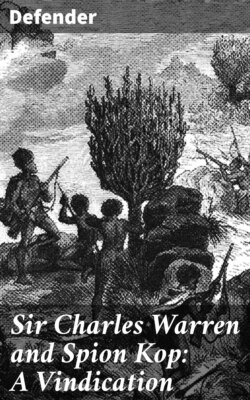Читать книгу Sir Charles Warren and Spion Kop: A Vindication - Defender - Страница 19
На сайте Литреса книга снята с продажи.
BECHUANALAND EXPEDITION, 1884–5
ОглавлениеTable of Contents
In that part of Bechuanaland lying to the north of Griqualand West, the white man had been rapidly encroaching upon native territory since the days when Warren commanded the Field Force of Griqualand West and prevented the Bechuanas invading the province. Two republics had been established in Bechuanaland; one, called Stellaland, in which English and Dutch adventurers had already taken possession of the land, ‘eaten up’ the native tribes, and become to some extent a settled people; the other, named Goshenland, in which Transvaal filibustering Boers plundered and oppressed the native race, and treated it with cruelty. These raiding Boers were supported by the Transvaal Government, which, since the so-called ‘magnanimous’ settlement, after the Majuba defeat of the British, and the exposure of the weak and vacillating policy of the British Government in the South African Colonies, had steadily set before it the substitution of a Dutch South Africa for a British, and had exhibited a contempt for the Queen’s authority which was rapidly developing.
All attempts to arrange with Mr. Kruger, President of the Transvaal Republic, for an equitable settlement of the Bechuanaland questions having failed, and further negotiations being useless, the Government had nothing left to them but to employ force. It was, however, desirable, in sending troops into the country to enforce the views of the Government, that the commander should be a man who had not only a thorough knowledge of the country and of the questions in dispute, but was also regarded as an authority in the settlement of land questions by both the British colonists and the Boers. In this way it was hoped that perhaps the moral support of an adequate force might enable him to settle matters satisfactorily, without having recourse to fighting.
Colonel Sir Charles Warren was the man who best fulfilled the required conditions, and was selected for the command of the expedition, given the local rank of Major-General, and appointed Special Commissioner.
A force of 5,000 men was raised and equipped, and supplemented by special troops and corps from home, one of which was Methuen’s Horse. Warren’s instructions were to remove the filibusters from Bechuanaland, to restore order in the territory, to reinstate the natives in their lands, to take measures to prevent further depreciation, and finally to hold the country until its further destination was known. As Special Commissioner he was to be under the directions of Sir Hercules Robinson, Governor of the Cape Colony and High Commissioner in South Africa, but was to be left a large discretion as regards local matters. In regard to operations in the field, he was to be responsible to the Secretary of State for War and the General Commanding in South Africa, and was not to be accountable to the Colonial Government or the High Commissioner.
Sir Charles Warren landed at Cape Town on 4th December 1884, and soon pushed his force up country into the disputed territory. The promptness with which he moved, and the efficiency of his force gave him the moral support which he required in carrying on negotiations with Mr. Kruger, and in these diplomatic dealings he exhibited the ability and tact which had distinguished him on previous occasions when called upon to settle disputes of a similar kind.
An officer of the expedition wrote home in August 1885:
‘Immediately after I despatched my last, it became evident that this Bechuanaland business was practically played out as a campaign. I should think there never before was such a case of a brilliantly executed advance into a distant country, followed by such complete inanition, as has fallen upon everybody (except, of course, the General Officer Commanding, who has had plenty to do politically) as took place here. By 2nd April the General and Headquarters Staff were fully established up at Mafeking (Rooi Grond), with telegraphic communication—220 miles, working without a hitch, I am glad to say—from end to end of the occupied country, and stores enough along the whole length of line to feed the entire army for three months. It really was a master stroke, considering the slowness of transport, the sandy state of much of the road, and the scarcity of water. But when one has said that one has said everything—since that time we, as an expedition, have simply been standing still.’
But ‘they also serve who only stand and wait,’ and while the expedition was chafing at being kept idle, with no fighting to do, and the prospect of rewards and distinctions for the campaign fading away, the moral effect of its presence made itself felt. The Transvaal Government, finding itself unprepared to fight, changed its attitude and Sir Charles Warren was able to make a peaceful settlement with Mr. Kruger, though not without many difficulties. He returned to England after a bloodless campaign, receiving the thanks of Parliament and of the Colonial Legislature, and promotion to the Grand Cross of the Order of St. Michael and St. George. But he was not made a supernumerary major-general after holding that rank in the field, and, on his return, reverted to the rank of colonel.
